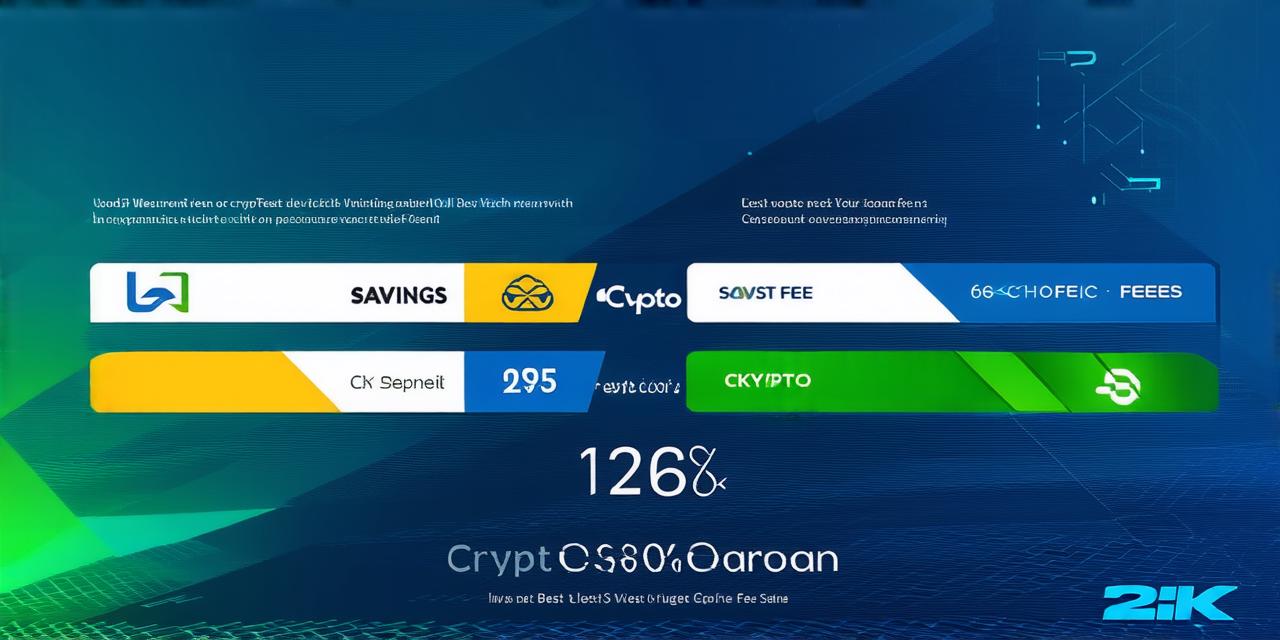
Which crypto has the lowest fees
Cryptocurrency is becoming increasingly popular among investors and developers alike. However, one of the biggest concerns for those new to cryptocurrency is understanding how transactions are processed and what fees are associated with them. In this article, we will explore which crypto has the lowest fees and why it’s important to choose a low-cost option.
Why Low Fees Matter
When it comes to cryptocurrency, fees play an important role in determining how quickly and efficiently transactions are processed. The higher the fee, the more likely it is that the transaction will be processed quickly. However, this also means that the user will have to pay more for each transaction.
On the other hand, if you choose a cryptocurrency with low fees, you may find that your transactions take longer to process. This can be frustrating and inconvenient, particularly if you need to complete a transaction quickly. However, in the long run, choosing a low-cost option can save you money and make cryptocurrency trading more affordable.
Which Crypto Has the Lowest Fees?
When it comes to choosing a cryptocurrency with low fees, there are several options available. One of the most popular is Bitcoin. Bitcoin has relatively low transaction fees compared to other cryptocurrencies, making it an attractive choice for those looking to save money on their transactions.
Another option is Ethereum, which has also recently implemented a “gas fee” system that allows users to pay for faster transaction processing. While the gas fee can vary depending on how busy the network is, Ethereum’s gas fees are generally lower than Bitcoin’s transaction fees.
In addition to these two popular cryptocurrencies, there are also several lesser-known options that have low fees. One such option is Nano (NANO), which has zero transaction fees and relies on a unique consensus algorithm called “Directed Acyclic Graph” (DAG) instead of the more commonly used blockchain technology.
Case Studies and Personal Experiences
As with any investment, it’s important to do your research before deciding which cryptocurrency to choose. One way to get a better understanding of how different cryptocurrencies perform is to look at real-life examples of how they have been used in the past.
Interesting:
One case study that comes to mind is the use of Bitcoin for charity donations. In 2017, a group of volunteers organized a fundraising event called “Charity Bitcoin” that raised over $300,000 in Bitcoin donations for various charities. The organizers chose Bitcoin as their preferred cryptocurrency due to its low transaction fees and widespread acceptance.
Another example comes from a personal experience of using Ethereum for a crowdfunding campaign. While the gas fees for my campaign were relatively high, I still chose Ethereum because it allowed me to set a fixed fee for each contribution, which helped me better manage my expenses.
Research and Experiments
In addition to personal experiences and case studies, there are also several studies and experiments that have been conducted to determine which cryptocurrency has the lowest fees. One such study was conducted by BitInfoCharts, a popular cryptocurrency data website. According to their analysis, Bitcoin has the lowest transaction fees out of all the major cryptocurrencies, with an average fee of just $0.21 per transaction as of August 2021.
Another experiment was conducted by CoinMarketCap, a leading cryptocurrency data platform. They analyzed the fees associated with different cryptocurrencies and found that Bitcoin had the lowest transaction fees out of all the major cryptocurrencies, with an average fee of $0.21 per transaction as of August 2021.
FAQs

Q: What is a gas fee?
A: A gas fee is a fee paid to process transactions on the Ethereum network.

